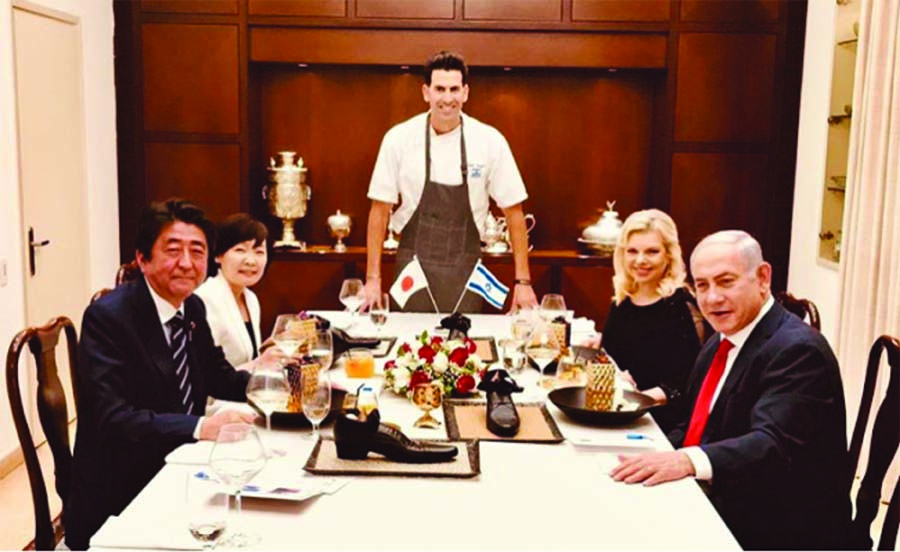
Middle East Eye
A formal dinner at the residence of Israeli Prime Minister Benyamin Netanyahu has come in for criticism – because guests were served chocolate desserts in shoe-shaped bowls.
The occasion was to mark the visit of Japanese Prime Minister Shinzo Abe to Israel. In Japan, shoes are not worn in the home nor in most restaurants and workplaces. Abe arrived in Israel with his wife Akie on 1 May, his second formal visit since 2015, and was welcomed by Netanyahu and his wife Sara at their residence in West Jerusalem. Segev Moshe, a renown Israeli culinary expert and Netanyahu’s private chef, was chosen to create the menu and dishes for the diplomatic dinner for the two leaders, along with their wives Akie and Sara.
After the main meal, Moshe rolled out the special dessert for the dining table: a selection of chocolates served in dark metal shoes, designed by the upscale Tom Dixon Studio, a British product and interiors company. Segev, who is also head chef for the Israeli airline El Al, uploaded an Instagram of himself with the Netanyahus and their guests, along with the four shoe-shaped desserts at the table. But his post received a negative response from some quarters. “I can not believe that you have put shoes on a table for the Prime Minister of Japan. Reality transcends parody,” Instagram user commented evyatarb commented in Hebrew.
While Zhytoun praised the food, he wrote: “Congratulations but… Never, ever, serve anything to the Japanese in a shoe! I like to think you did not mean any offence, right? And a bit of homework on other people culture next time will not hurt.” Others took to Twitter to offer their criticism. Translation: To serve the Japanese prime minister such a plate when in Japan’s culture there is no object despicable more than a shoe. Beginner’s mistake. Japanese etiquette cherishes cleanliness and regards shoes as something left outside the home: the Lonely Planet guide states that “you’ll always have to remove footwear when entering a private home, traditional accommodation (minshuku or ryokan), and temple halls. Some restaurants with tatami (woven-straw matting) areas will also require visitors to take off their shoes, as will some hostels and historic sites. Wherever you’re required to remove footwear, this is non-negotiable.”

